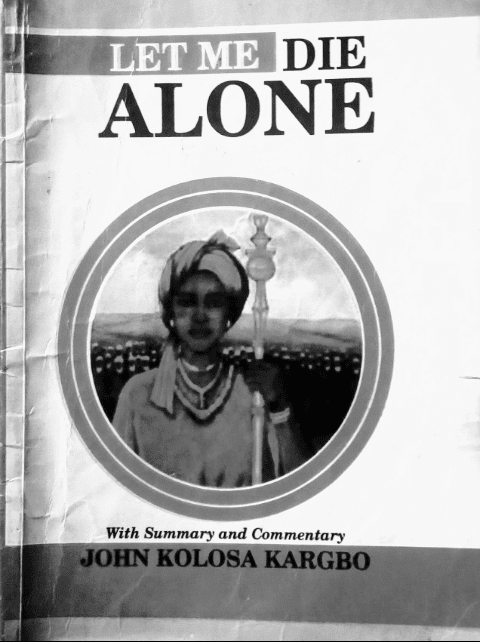Raider of the Treasure Trove is a simple didactic poem that emphasises the dangers and the resulting destructiveness of rage. It also brings to the fore the need to radiate joy and happiness in all life’s endeavours.
The poem bears the trademark of traditional African literature, which is its didacticism. The poem infuses moral instructions on how to live a good life. It distinguishes between a good life and a bad one.
In this post, I shall examine some of the themes that can be found in “Raider of the Treasure Trove”.
Lade Worsonu’s “Raider of the Treasure Trove” explores the themes of the destructive power of rage, the essence of life, the conceptualisation of life as a journey, the mind as a catalyst for feelings, and bliss.
Now, let’s delve right into the highlighted issues.
Destructive Power of Rage
The poem is emphatic about the destructiveness of rage through and through. It demonstrates the destruction uncontrollable anger can bring to us.
It says rage can “breach your sails with arrow unseen”; that “it drags rags after you”; and that “rage spreads toxic fumes on every scene”. These images no doubt show us the dire things rage is capable of. Rage can bring us problems and make life difficult and miserable than it should normally be. Similarly, when we are often overwhelmed by wild anger, we are prone to make wrong and regrettable decisions that could hit us rock bottom.
The poem is explicit about fact that rage brings disasters. Lines 16 and 21 of the poem confirm this. In one, the poet says, “rage spells calamity”. In the other, the poet asks, “can ruin lag far behind?” where rage sets sail. In other words, the poem puts forward the proposition that rage is the harbinger of bad fortune and the dire consequences of this emotional outburst cannot be underestimated. It attracts like magnetic force hatred and bitterness into one’s life.
Essence of Life
While the poem frowns at rage and its destructive tendencies, it also spells out in very clear terms the essence of life – the vital codes we should live our lives by. These moral codes are what the poet calls “the treasure trove”. When rage sets in, it can deprive us of these values and ultimately our lives.
The poem identifies joy, love, compassion, and charity as the good values we must base our lives on. It advocates that we must exhibit these attributes everywhere we go and to everyone we meet. It emphasizes the need to be composed and be on top of our emotions at all times.
The Conceptualisation of Life as a Journey
The poem defines life in terms of a journey. It particularly equates life to a sea voyage. Humans are the ships. Their growths and movements are equated with the sailing of a ship. Life itself is the sea. The storms are one’s life challenges. And places one berths are the human engagements one has along the way.
The poem is instructive on how to make the best of the situations one finds oneself in the journey. It also intimates one with the behavioural codes to follow while on the course of this journey.
The Mind as a Catalyst for Feelings
The poem is particular about how our minds influence our feelings. How we think or how our thoughts are patterned decides how and what we feel. The poet writes, “As you think, so you feel”. He also warns us to be careful of what we let into our minds.
The poet opines that the cause of rage itself is our “perception of storms”. In other words, our perceptions of life and its numerous challenges have huge bearing on our emotional reactions. That is why the poem is in a way a redefinition of life and its essence; that we are supposed to live joyfully with love, compassion, equanimity and the right frame of mind.
Bliss
The poem also explores the idea of bliss, the kind associated with heaven. It says man should model his life around the concept of this bliss. He should be happy and embody “laughter, sweetness and joy”. He should love everyone he meets on his thoroughfare through life.
More than once, the compound expression “heaven-on-earth” is mentioned. The first time it is mentioned, the poetic persona is trying to tell his audience to aspire towards that sort of extreme joy associated with heaven. The second time the expression is used, the poetic persona himself is saying he wants to live that sort of life here on earth.
Therefore, the poetic persona’s description of an ideal life is one driven by unparalleled happiness, sweetness, and good-naturedness.
Further Reading:
- Poem: RAIDER OF THE TREASURE TROVE by Lade Wosornu
- Content Analysis of Lade Worsonu’s “Raider of the Treasure Trove”
 WHATSAPP: Click HERE to join the new Literature PADI WhatsApp group to receive latest updates on your phone and for further literary discussions!
WHATSAPP: Click HERE to join the new Literature PADI WhatsApp group to receive latest updates on your phone and for further literary discussions!









